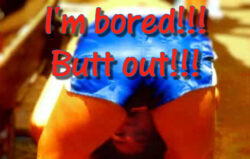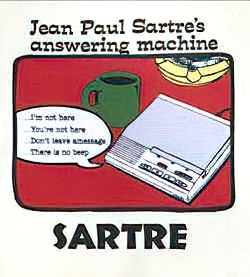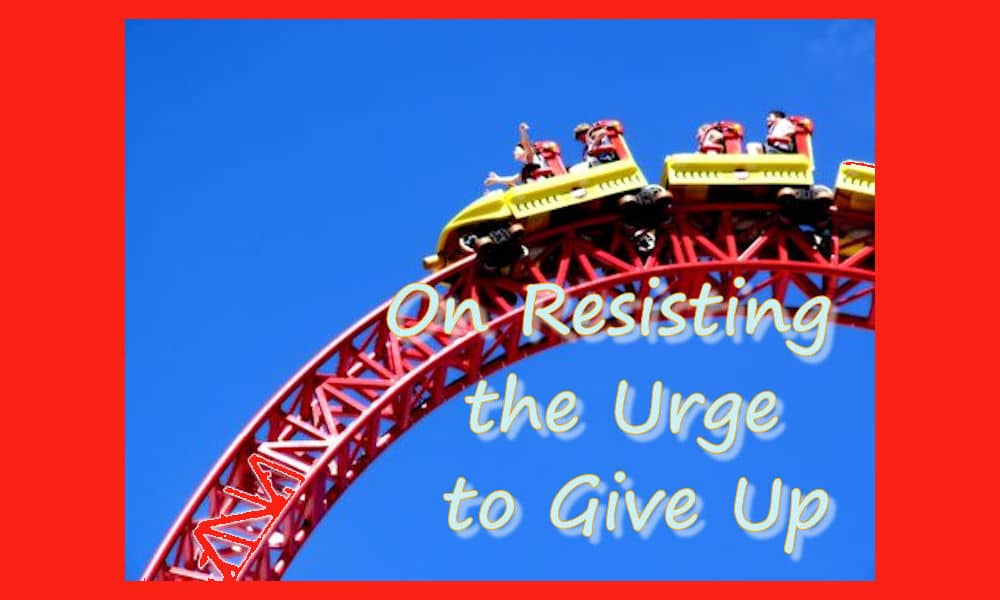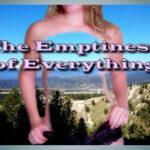On Resisting the Urge to Give Up — the world we see is the one we get to live in. Choose well how to do so!

This Endless Moment
An excellent guide to life and living.
Learn to focus your attention of who you really are.
Purchase all formats from Amazon
Purchase digital versions
(Apple, Nook, Kobo, etc.) from this page

I suspect that screaming, “I’m bored!” has moved from childhood into what passes for adulthood these days.
There seems to be an epidemic of ennui about, as people pretend that it’s OK to watch from the sidelines as the world disintegrates.
There’s an idea in Tom Robbins’ Even Cowgirls Get the Blues:
One of the characters is a Japanese anti-guru who lives in the hills near the cowgirls’ ranch.
At one point, he’s having a conversation with one of the “girls,” and they’re talking about the state of the world.
He says that the biggest problem facing humanity is “ambulatory catatonia.”
And doesn’t that just seem to be the case?
This way of seeing things might just have started with Kierkegaard, who noticed the obvious:
Since boredom advances and boredom is the root of all evil, no wonder, then, that the world goes backwards, that evil spreads. This can be traced back to the very beginning of the world. The gods were bored; therefore they created human beings.
Soren Kierkegaard (1813–55), Either/Or, vol. 1, “Rotation of Crops” (1843; tr. 1987).
Kierkegaard was followed by such notables as Nietzsche, Sartre and Camus; they explored meaning vs. meaninglessness. Thus began the modern existentialism movement, which was a “noticing” of how fundamentally weird the world is.
By the end of World War II, existentialism was at its height. European existentialists thought that nothing could be any worse than, nor a more clear-cut example of, the meaninglessness of life than the destruction caused by WWII. (Little did they know, eh?)
French philosopher Jean-Paul Sartre first gave the term existentialism general currency by using it for his own philosophy. Explicitly atheistic and pessimistic, his philosophy declared that human life requires a rational basis but the attempt is a “futile passion.” Nevertheless, he insisted that his view is a form of humanism, emphasizing freedom and responsibility.
The Encarta — Desk Encyclopedia Copyright 1998 Microsoft Corporation. All rights reserved.

Or, to put it more humorously, this cartoon seems to capture it all: (This cartoon was a part of a t‑shirt collection by a company called Bovis Threads of Kingston, Ont. A web search failed to turn up the company after 1999. They seem to have gone “belly up.”)
The message is a bit hard to read. It says:
I’m not here
You’re not here
Don’t leave a message
There is no beep
The Sartre reference from Encarta contains the seeds of liberation–read the last sentence.
Freedom and responsibility is actually the antidote to the stultifying effects of being human.
Thus, existentialism — in its purest form — makes much sense. Note the following definition of existentialism:
A philosophy that emphasizes the uniqueness and isolation of the individual experience in a hostile or indifferent universe, regards human existence as unexplainable, and stresses freedom of choice and responsibility for the consequences of one’s acts.
Excerpted from The American Heritage Dictionary of the English Language, Third Edition Copyright 1992 by Houghton Mifflin Company.
There are parallels to Buddhism here. Buddhism has no interest in the stories we tell ourselves — life just “is” — we just “are,” and the only sane approach is to first notice, then act.
Existentialists (and Buddhists) reject the notion that life is predetermined and run by something (i.e. god) outside of us. In Buddhism, there is endless causation… things emerge out of what comes before… but everything lacks meaning.
There is NO meaning that is “for all time and for all people.” Instead, we are left with personal understanding (or lack thereof…)
Life is “about,” or “means” whatever I choose it to mean.
We hate this.
We want our beliefs to be “what everyone believes.” Some are so insecure that they want someone as meaningless as Trump to enforce their beliefs.
This happens because of our gut sense of meaninglessness is so scary; we don’t want to feel alone, floating aimlessly in a meaningless universe. This is actually what draws Trump followers in so deeply. It’s the Kool-aid of “I’m part of a special group.”
So, how does this relate to ambulatory catatonia, and Resisting the Urge to Give Up?
First, the catatonic among us only “get” the first piece of the existentialist paradox:
…the uniqueness and isolation of the individual experience in a hostile or indifferent universe, regards human existence as unexplainable…
As I just wrote, this idea can be scary — that we are cast adrift, alone, in a little boat on a dark and stormy sea. There is no meaning, no direction and no help from “above.”
Giving this reality, three options exist:
- fall overboard and drown,
- stop paddling and tune out (ambulatory catatonia) or
- enjoy the paddle anyway.
My approach to this existential dilemma is contained in the second part of the definition, above:
…and stresses freedom of choice and responsibility for the consequences of one’s acts.
Many of us, rather than living in the now, sucking the experience out of life, are still stuck in past relationships and situations, as if frozen in motion.
We obsess and obsess, and nothing changes, except for one thing: the number of days of your life goes down by one, each day. You don’t get ’em back at the end.
To be self-responsibly free is to let go of attachments to the past. It is to let go of obsessing about the future. It is to find this moment, again and again, and to seize the moment and wring the living out of it, swallowing the moment whole, so to speak.
To do otherwise is to stop in your tracks, and plead for rescue, or to freeze and hope that someone is coming to even the score and level the playing field.
In the mean time, life continues apace, never once looking in your direction nor caring how you are doing.
This week, look at how you are fixed in place, by your assumptions, by your fear, by your lack of courage. Then, decide to experiment with leaving ambulatory catatonia and the dread of meaninglessness behind, and live despite it all.





